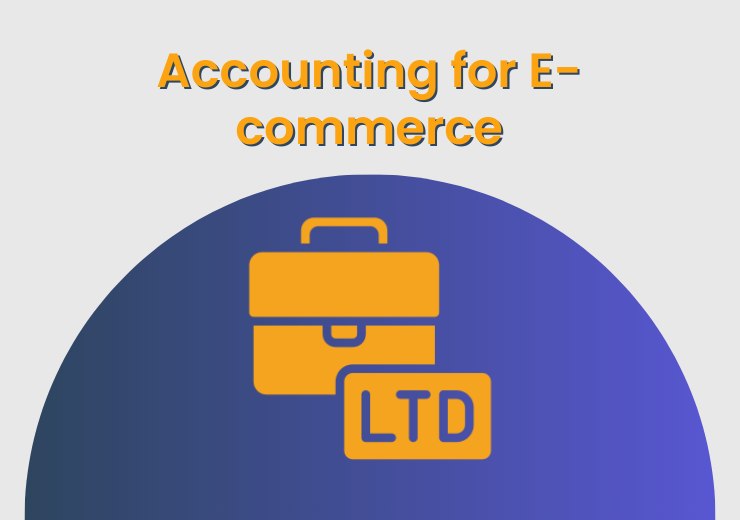The world of e-commerce is a bustling marketplace where businesses strive to attract and retain customers, often with fierce competition. While focusing on marketing strategies and customer experience is essential, one aspect that must not be overlooked is accounting. Effective accounting practices are crucial for the success and sustainability of online retailers. In this article, we will explore the best practices for accounting in the world of e-commerce.
Understanding the Importance of Accounting in E-commerce
E-commerce businesses, like their brick-and-mortar counterparts, need accurate financial data to make informed decisions. Accounting helps online retailers track income, expenses, and profits. It provides valuable insights into the financial health of the business and guides strategic planning.
Choosing the Right Accounting Software
Selecting the right accounting software is the foundation of efficient e-commerce accounting. The choice of software should align with the specific needs and scale of your online business. Consider factors such as user-friendliness, scalability, and integration capabilities when making this crucial decision.
Organizing Financial Data
Proper record-keeping is the backbone of effective accounting. Online retailers should establish organized systems to track sales, expenses, and other financial transactions. This includes maintaining records of invoices, receipts, and payment confirmations.
Taxation Compliance
Navigating e-commerce taxation can be a complex endeavor. Online retailers need to be aware of the tax regulations in their operating regions and stay compliant. This may involve collecting and remitting sales tax, as well as understanding the implications of cross-border e-commerce.
Managing Inventory and Cost of Goods Sold (COGS)
Accurate management of inventory and calculation of Cost of Goods Sold (COGS) is essential in e-commerce. Understanding how much it costs to produce or purchase the products you sell online is crucial for setting competitive prices and assessing profitability.
Monitoring Cash Flow
Cash flow management is a critical aspect of e-commerce accounting. It involves tracking the movement of money in and out of the business. Maintaining a healthy cash flow ensures the ability to pay suppliers, cover expenses, and invest in growth.
Handling Refunds and Returns
In the world of e-commerce, product returns and refunds are common. Properly accounting for returns is crucial to maintain accurate financial records. This includes tracking returned inventory and ensuring refunds are accurately processed.
Financial Reporting
Generating insightful financial reports is a key practice in e-commerce accounting. Comprehensive reports provide a snapshot of the business’s financial health, allowing retailers to make data-driven decisions and identify areas for improvement.
Budgeting and Forecasting
Budgeting plays a significant role in e-commerce success. By setting financial goals and creating budgets, online retailers can control expenses, allocate resources efficiently, and make informed decisions to drive growth.
Auditing and Internal Controls
Establishing internal controls and conducting regular audits is vital to maintaining financial integrity. These practices help prevent fraud, errors, and irregularities in financial transactions, ensuring the accuracy and reliability of financial data.
International E-commerce Considerations
Expanding globally presents unique accounting challenges. Online retailers venturing into international markets need to navigate currency exchange, tax implications, and regulatory differences. Being well-prepared is essential for success in the global e-commerce arena.
Keeping Up with Industry Changes
The e-commerce landscape is dynamic, with frequent changes in technology, customer behavior, and regulations. Successful e-commerce accountants stay updated on industry trends, ensuring their accounting practices remain relevant and effective.
Conclusion
In the fast-paced world of e-commerce, accounting is a cornerstone of success. Online retailers should invest time and resources in adopting best accounting practices. Accurate financial data, efficient tax management, and strategic financial planning are keys to thriving in this competitive arena.
FAQs
-
What accounting software is best for e-commerce businesses?
- The choice of accounting software depends on your specific needs, but popular options include QuickBooks, Xero, and FreshBooks.
-
How do I handle international taxation in e-commerce?
- International taxation can be complex. Consider consulting with a tax expert to navigate the regulations of the countries you operate in.
-
What is the significance of tracking COGS in e-commerce?
- Calculating the Cost of Goods Sold (COGS) is essential for pricing strategies and assessing the profitability of your products.
-
How can e-commerce businesses maintain healthy cash flow?
- Effective cash flow management involves monitoring income and expenses, setting aside funds for emergencies, and ensuring timely payments.
-
Why is it important to stay updated on e-commerce industry changes?
- Staying informed about industry trends allows e-commerce businesses to adapt to evolving customer preferences and regulatory requirements, staying competitive and compliant.

